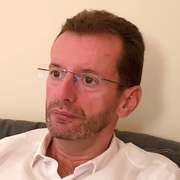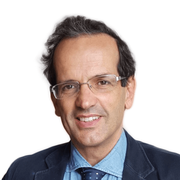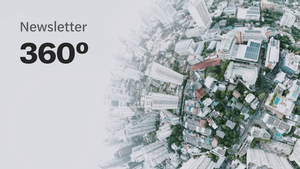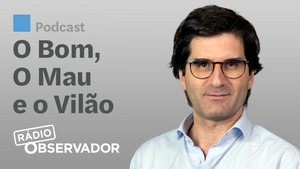1 The NATO-Russia Council was just over two years old when Boris Yeltsin nominated Vladimir Putin as Prime Minister. After that, gradually, what used to be a forum for consultation, consensus, cooperation, decision-making and joint action for security issues within the Euro-Atlantic region began to fade away. The reasons for detachment were not only due to old Russian suspicions about NATO enlargements. The installation of the NATO missile defense system in Europe also raised significant questions.
In 2007, Putin began to ask for a revision of the Intermediate-Range Nuclear Forces Treaty (INF Treaty) seeking security enhancement. General Yuri Baluyevsky, Chief of the General Staff of the Armed Forces of the Russian Federation, acknowledged that Russia was considering unilaterally withdrawing from the INF Treaty, in response to the deployment of the NATO missile defense system in Europe and because other countries, like China, were not bound by the Treaty. In the same year, Russia suspended and later withdraw from the Treaty on Conventional Armed Forces in Europe. Shortly thereafter, the Kremlin announced an 8-year investment of US$100 billion in modernizing its military capabilities and developing completely new nuclear missile systems. Today we know that Putin’s motivations were different. Russian actions in Abkhazia and South Ossetia (2008), as well as Crimea (2014) and the present ignoble interference in Ukraine illustrate this statement.
2 There is, since 1725, in Russia, a document that, apocryphal or not, seems to have influenced its behavior as a State. Not even the 1917 Revolution and the consequent regime change altered the execution of the ideas contained therein: territory and influence. Just remember how the Bolsheviks reacted to the territorial loss imposed by the Treaty of Brest-Litovsk. I refer the Testament of Peter the Great.
In 2007, I authored an article – Crossroads – where I discussed Russia’s shift to a capitalist system and the resulting growth potential, saying that I would not be surprised if the germ of expansion reappeared. I said that the “heirs” of Peter the Great appeared to be revitalized. At least, as far as his current successor [Putin] was concerned in Russia’s resurgence on the world stage.
However, I missed one point in my analysis. I considered that Putin used the control system characteristic of the political apparatus of the former Soviet Union, but that he abandoned the communist system, merging these factors into the equation of democracy, when what Vladimir Putin was creating was an autocratic corporatist political structure, like the Chinese, under democracy’s guise.
Georgia, Crimea, and the invasion of Ukraine serve to prove Putin’s pattern of behavior. But something earlier happened that cannot be forgotten – Chechnya.
I have already written about Putin’s strange rise to power. As prime minister, and even as interim president, polls showed Putin had low levels of approval. Everything changed with the war in Chechnya. Do you remember what triggered this war? It was the explosion of bombs in apartment blocks in Moscow, attributed to Chechen terrorists. The Russian retaliation, which flattened Grozny (identical to what is happening in several Ukrainian cities) made Putin a popular hero.
Vladimir Putin has just compared himself to Peter the Great. Putin also hinted that without the 21-year war it would not have been possible for the Russian Tsar to found Russia’s new capital, St. Petersburg. built on land that no European country recognized as Russian. After hearing this, I wonder where Putin intends to establish the new Russian capital?
3 Why should we continue to support Ukraine? Because the fall of Ukraine will only serve to keep Putin on this path. He did not stop at Crimea; he will not stop at Donbass. European leaders must avoid pressure on Zelensky that imply territorial concession. As well as providing an incentive for Putin, it could also mean the end of Ukrainian unity around its President. What happens next? What effects will have the fall of Ukraine on the countries of the European Union and on NATO? Who can tell us that the war will not reach the borders of Poland and Germany? Especially if we show weakness. Make no mistake. It is in Ukraine that democracy, freedom, and respect for international law are being fought for.
How can we show more firmness? I know how the dynamics between the European institutions work, namely between the Commission and the European Council. I believe that Ursula Von der Leyen and that Charles Michel tend towards the integration of Ukraine in the EU. I support this measure, but I am concerned about the time such recognition involves.
Exceptional times require extraordinary responses. Therefore, I suggest an Ad Hoc procedure to speed up the process. I am aware of all the implications inherent in this suggestion. I am also aware that all candidate countries for accession must comply with the Acquis Communautaire and that there are other countries with previous requests. However, none of these countries have been invaded, nor are they at war. Furthermore, in the same Ad Hoc procedure, the subsequent conditions for Ukraine to become a fully-fledged Member State would also be expressed.
We must learn from the lessons of life and of history. Both the pandemic and the Russian invasion of Ukraine have shown us that some decisions need to be reconsidered. We cannot remain dependent on just one country (either as a supplier or as a partner) and that, for example, we urgently need to formulate policies to encourage nearshore and onshore production in a myriad of areas. But what is at stake now is saving lives. It is not about deciding policies. We must reaffirm the Values we uphold. That is why we are deeply touched by the Ukrainians attitude. They are showing us that Democracy and Freedom comes at a cost.
It is undeniable that under Ursula Von der Leyen leadership, European sanctions have reached an unprecedented level. But it is necessary to go further. Vladimir Putin is not to be trusted. Hence, it is necessary to give an unequivocal sign of firmness.
Membro da Comissão Executiva da Iniciativa Liberal












